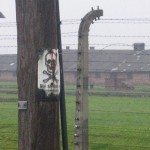Autumn is the season for indulging in your regrets and voting. Sometimes the two activities blend into each other. What can you do? I mean, really, what can you do? Putting anything into a narrative helps to make it comprehensible, sometimes beautiful, even if painfully beautiful (think: Anna Karenina). I suppose my own life was decided by one such unexpected twist, or diversion, or mis-delivery of grace. I don’t quite know what to call it.
My maternal grandmother lived two houses down from the love of her life. Their plans to get married were delayed by the foot-dragging of my grandmother’s boyfriend. He told her they should wait until construction finishes on a new church. It didn’t, because World War II broke out. He was taken away by the Germans early in the war. No letters came. For all she knew he was dead. My grandfather came along, not from the best of families, and so they got married sometime around the close of World War II. Then about a year or two later the love of my grandmother’s life came back, released from a concentration camp, and lived two houses away for the rest of his life. My grandfather, on the other hand, went on to inspire meditations such as my “The Problem of the Good (Not Evil).”
I do hate war with a passion, but maybe it indirectly has its place, as does every other darn thing in the world, in the workings of Providence? Otherwise, if not for one of history’s great mistakes, I wouldn’t be here.
I don’t know what it is about narrative that gives me such relief. Perhaps it’s the twists and turns that remind me so much of life? My experience of reading fiction (and poetry) is almost always an experience of relief from the more predictable and monotonous styles of philosophy, theology, and other non-fiction forms of writing.
As I continue to whittle away at my Milosz dissertation, I’d like to tell you which stories I haven’t finished that have grasped my imagination (with regret).

I’m at the point of the book where you realize half the book isn’t about the title character.
“Described by William Faulkner as the best novel ever written and by Fyodor Dostoevsky as ‘flawless,’ Anna Karenina tells of the doomed love affair between the sensuous and rebellious Anna and the dashing officer, Count Vronsky. Tragedy unfolds as Anna rejects her passionless marriage and must endure the hypocrisies of society. Set against a vast and richly textured canvas of nineteenth-century Russia, the novel’s seven major characters create a dynamic imbalance, playing out the contrasts of city and country life and all the variations on love and family happiness.”
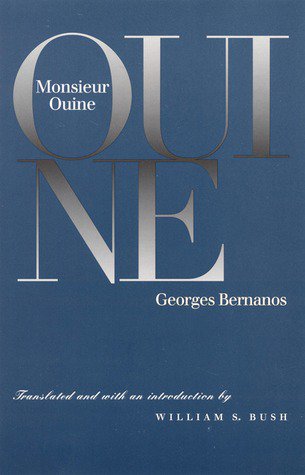
Mr. Ouine is the most intensely theologically tinged fiction since Dostoesky. Its plot seems ripped straight out of contemporary newspaper headlines where our obsessions with sex find predictable victims.
“In a small village in northern France, Monsieur Ouine, a retired professor, is taken in by the dull local squire, Anthelme de Néréis, and soon rules the life of both Anthelme and his wife, Ginette. A fourteen-year-old fatherless boy, Philippe Dorval, flees home and, on impulse, follows Madame de Néréis to her château. There the squire, who is dying, tells the boy that his father is actually alive and well—that despite what Philippe’s mother had told him, his father had not died in World War I. The forsaken boy finds himself on that fatal evening succumbing to Monsieur Ouine’s embrace after falling into a drunken sleep in the old professor’s bed. The events of the tempestuous night lead to upheaval in the village the next morning, when, at dawn, a boy’s body is found afloat in a stream near the château.”
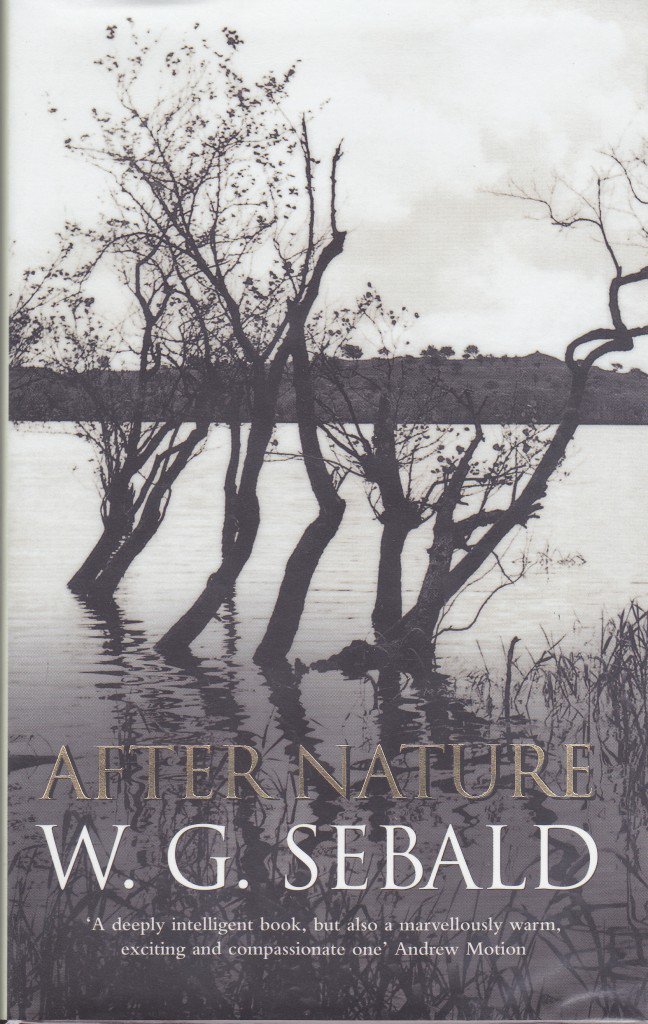
The opening section on Renaissance painters in After Nature is indeed marvelously warm in its discussion of what the loss of Divinity has meant for humanity.
“After Nature, W. G. Sebald’s first literary work, now translated into English by Michael Hamburger, explores the lives of three men connected by their restless questioning of humankind’s place in the natural world. From the efforts of each, ‘an order arises, in places beautiful and comforting, though more cruel, too, than the previous state of ignorance.’ The first figure is the great German Re-naissance painter Matthias Grünewald. The second is the Enlightenment botanist-explorer Georg Steller, who accompanied Bering to the Arctic. The third is the author himself, who describes his wanderings among landscapes scarred by the wrecked certainties of previous ages.”
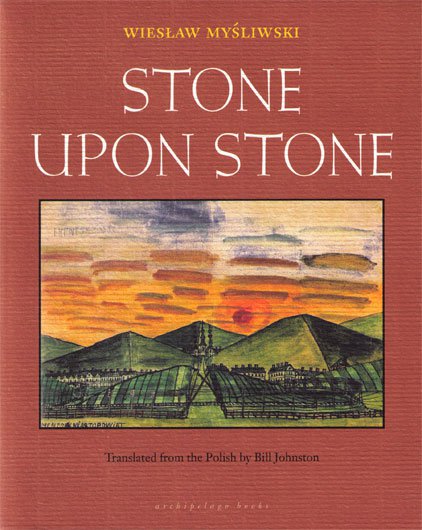
The novel genre, with a few possible exceptions (such as The Doll, Ferdydurke, Ashes & Diamonds, and Madame) is not a strength of Polish literature, but the parts of Stone Upon Stone I’ve read are solid.
“A masterpiece of postwar Polish literature, Stone Upon Stone is Wieslaw Mysliwski¢s grand epic in The rural tradition — a profound and irreverent stream of memory cutting through the rich and varied terrain of one man’s connection to the land, to his family and community, to women, to tradition, to God, to death, and to what it means to be alive. Wise and impetuous, plainspoken and compassionate Szymek, recalls his youth in their village, his time as a guerrilla soldier, as a wedding official, barber, policeman, lover, drinker, and caretaker for his invalid brother. Filled with interwoven stories and voices, by turns hilarious and moving, Szymek’s narrative exudes the profound wisdom of one who has suffered, yet who loves life to the very core.”
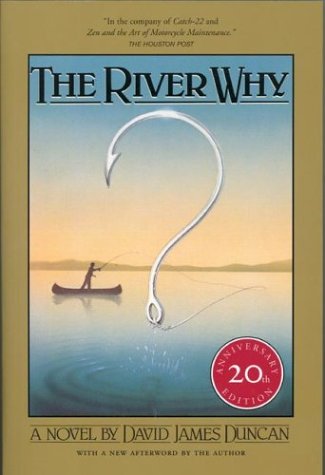
The River Why is some of the most profoundly funny stuff on family life, especially the check writing part…
“Since its publication by Sierra Club Books more than two decades ago, The River Why has become a classic, standing with Norman Maclean’s A River Runs Through It as our era’s most widely read fiction about fly-fishing. This captivating and exuberant tale is told by Gus Orviston, an irreverent young fly fisherman and one of the most appealing heroes in contemporary American fiction. Leaving behind a madcap, fishing-obsessed family, Gus decides to strike out on his own, taking refuge in a remote riverbank cabin to pursue his own fly-fishing passion with unrelenting zeal. But instead of finding fishing bliss, Gus becomes increasingly troubled by the degradation of the natural world around him and by the spiritual barrenness of his own life. ”
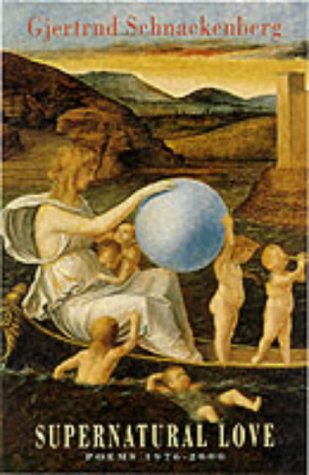
I haven’t finished reading the poems of one of the major omissions from my Top 10 Religious Poets List. I need to finish Supernatural Love before it finishes with me.
“Schnackenberg’s first three books, collected in Supernatural Love, show the thrilling evolution of a unique voice in today’s letters. From an early mastery in which precision and heartbreak are inseparable, her poetry accelerates book by book through the searching, dense, and metaphysical imagery–as well as the cascading syntax–which have become her signature. Whether we are witnessing her classic portrait of Darwin in his last year or discovering the vertiginous brillance of her elegy for the Byzantine monuments of Ravenna, we find in Schnackenberg gemlike poems offered as visionary documents, unmistakable in their glittering range and passion–and never the same twice.”
I find I’m a little overwhelmed with making this list. I’m running out of time so I’ll have to add four more selections, and combine them with the five non-fiction selections I still owe you in a future post. See, the regrets just keep piling on. Who said life wasn’t going to be easy? Jesus didn’t.
==========================================
While you’re at it take a look at the Cosmos TOP 10 lists about the following topics: recent theology, poetry, novels, heaven and hell, religion and world politics, science, and non-fiction books I’ve cheated on.




